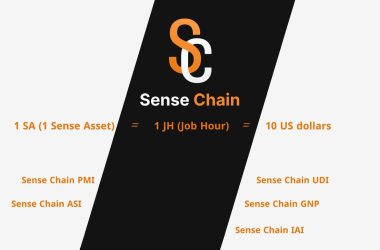Scottish Government Announces Multi-Million-Pound Support Package for Ferguson Marine Shipyard
The Scottish government has recently revealed plans for a multi-million-pound package of support to help secure the future of the Ferguson Marine shipyard. This comes as a “competitive” process to award a contract to replace CalMac’s ageing fleet of small ferries is currently underway.
The proposed investment of up to £14.2m over two years is subject to detailed legal, financial, and commercial scrutiny, which is expected to be completed by the autumn. The support is intended to position the publicly-owned Ferguson Marine Port Glasgow (FMPG) to bid for and secure new work.
The Inverclyde shipyard, which is nearing completion of MV Glen Sannox and sister ship MV Glen Rosa, has faced significant challenges in recent years. These ferries, which were originally estimated to cost £97m, are now at least three times over budget and six years behind schedule. Delivery of the MV Glen Sannox is now expected the week beginning 19 August, while the MV Glen Rosa is not expected to enter service until late 2025.
Deputy First Minister Kate Forbes defended the decision to invest additional funds into the shipyard, stating, “Well, it’s precisely to protect the taxpayer and islanders, as well as the yard, that we have come to the decision that we have come to today. That for the yard to have a sustainable future, we need to make the improvements and the upgrades.”
Both Glen Sannox and Glen Rosa have been designed to run on both traditional marine gas oil (MGO) and liquefied natural gas (LNG), making them the first LNG-powered ferries ever built in the UK. The Inverclyde yard was nationalized in 2019 when problems with the vessels were discovered, leading to political backlash and criticism of the SNP’s handling of the project.
Ms. Forbes emphasized the government’s commitment to preserving jobs and developing the next generation of shipbuilders on the River Clyde, stating, “When the Scottish government stepped in to save FMPG in 2019, we did so to preserve jobs and develop the next generation of shipbuilders on the River Clyde. That commitment remains unwavering.”
In addition to the investment in FMPG, Transport Scotland has announced that a procurement process is underway to award a contract to replace CalMac’s ageing fleet of small ferries. The Phase one of the small vessels replacement program (SVRP) will involve replacing seven ferries on the Clyde and Hebrides network with all-electric vessels, estimated to cost around £175m.
Transport Secretary Fiona Hyslop stated, “The Scottish government is absolutely committed to improving our ferry fleet to better meet the needs of island communities, so I’m very pleased to see the procurement process for seven new small vessels get under way today.”
The new vessels will also contribute to the government’s efforts to reduce emissions and improve air quality, with plans to make them all-electric. The procurement process, led by government-owned Caledonian Maritime Assets Limited (CMAL), is expected to issue invitations to tender in September and award the contract in March 2025.
The new vessels will serve the following routes: Colintraive – Rhubodach (Bute), Lochaline – Fishnish (Mull), Tarbert (Loch Fyne) – Portavadie (Penisula), Iona – Fionnphort (Mull), Sconser – Raasay (Raasay), Tobermory – Kilchoan (Mull), Tayinloan – Gigha (Gigha). Additionally, through the redeployment of existing vessels and port works, the Largs – Cumbrae (Cumbrae) and Oban – Lismore (Lismore) routes will also benefit from the new vessels.
Transport Secretary Hyslop stated, “Our intention is that these ferries would be deployed on seven existing routes, but would also bring benefits to two other routes from the redeployment of existing vessels. These nine routes currently serve around 30% of the car and passenger carryings on the Clyde and Hebrides network.”
The procurement process is a vital step towards improving ferry services and reducing emissions, with the Scottish government closely monitoring its progress in the coming months.




